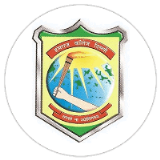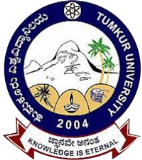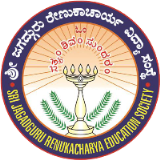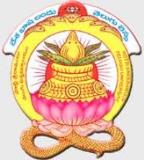






Study in India
GDP
$ 3.05 Trillion (6th)
Population
139 billion
Language
Hindi
Capital
Delhi
Currency
Indian rupees ₹
Temperature
-4° C to 47° C
- Why Study in India
- Accommodation
- Student Visa Process
- Post Admission
- Top Universities
- Top Courses
- FAQ
Why Study in India
India holds the second position in providing the best higher education courses across the world. Indian universities are renowned for rendering some of the topmost quality engineering and management courses. Based on the students’ skill needs in tune with the shifting technologies in the educational sector, a host of courses such as MBA, Liberal Arts, Sciences, Artificial Intelligence, IoT, MBBS, and many more are available.
- India is one of the fastest-growing economies with a diversified spectrum of sectors that are growing rapidly
- Home to fortune 500 companies such as Indian Oil, SBI, Reliance Industries, Tata, Wipro, Infosys, and many more
- Most suitable hub for young entrepreneurs who introduce a gamut of start-ups thriving and procuring universal acknowledgments
- Well-developed tech ecosystem for enhancing innovation, entrepreneurial growth, and building a promising professional career
- Affluent resource pool of ancient philosophies, Ayurvedic methodologies, Yoga, and Spiritualism

Almost all the higher education courses are delivered in the English language by the top engineering colleges in India and by the best MBA colleges in India and other such streams. They offer great ease of communication that is heartily accepted and applied by international students. India holds a rich cultural heritage of diversified religions, languages, traditions, and philosophies. Geographically, it is beautified with marvelous landscapes ranging from Great Himalayas in the Northern region to Kanyakumari rocks in the South. From the great Rann of Kutch in the west to a host of divinity with wonderful clouds in the east, India is known to be a holy abode of God.
Accommodation (Cost of living expenses)
The below table will help you know the average cost of living that needs to be incurred for studying in India. The cost of living is highly affordable in comparison with other developed and developing countries.
| Cost of Living Items | Cost ($) Per month |
| Accommodation | $125 |
| Personal Expenses | $50 |
| Laundry | $115 |
| Mobile Prepaid | $10 |
| Food & Housekeeping | $100 |
| Stationery | $30 |
| Public Transport | $45 |
Student Visa Process
International students who wish to study in India and pursue their studies from officially recognized educational institutions from India are granted Visas. This includes all kinds of courses from various streams.
India Student Visa Process
1.Get an acceptance letter from Recognized Indian University
Apply for a visa once you receive an acceptance letter from a University in India
2. Take an appointment with your local consulate
Make your application in person from your nearest Indian embassy or consulate. If possible, book an appointment online
3. Finish your application and provide documents
While you attend your visa appointment you must complete and sign a visa application, submit it with the necessary documents (as listed below)4. Wait for the decision
The visa application process can take between 3 to 15 days. You can track the progress of your application on the Indian consulate website
5. Apply for the residence permit
Soon after you arrive in India, you will need to apply for a residence permit within one month.
Attend Your Visa Appointment
Depending on the interview, you shall get your visa and you need to mention why you wish to study in India. Hence, creating a good impression during the interview is essential. Make sure you carry all your documents when you go for the appointment. Missing a single document can make your application get rejected.
Indian Student Visa Requirements
- Foreign students arriving in India to pursue full-time academic studies
- Foreign students coming for internships, summer projects, or industrial training
- Six months provisional student visa for students exploring for admission
- No Objection Certificate is needed from the applicant from the Ministry of Health for medical admissions and paramedical courses.
- Spouse or dependent family members who accompany the foreign students needs to apply for an Entry Visa.
- As a student, you can fill the online visa application at http://indianvisaonline.gov.in/visa/ and visit the nearest embassy with the printout of the online filled application with the required documents
Work Opportunities (Post Admission)
India offers a wide spectrum of educational opportunities to international students with a gamut of engineering colleges and MBA colleges in India. Besides, there are other professional and vocational courses available. Several students seek work opportunities in India – before and after studies. The Government of India has already taken a strong initiative by putting up a proposal to allow international students to work in certain fields while studying. However, the bill has not yet been passed.
While the Indian Government has restricted foreign students to work during the study in India, it exempts NRI, OCI, and PIOs from this criteria. Below points need to be considered on work opportunities for international students.
- Foreign passport holders not allowed to work during their study period in India
- OCI (Overseas Citizens of India) and Persons of Indian Origin (PIO) are exempted from this rule. They can work and study in India
- Foreign students are permitted to take up internships and training in India. This should be a part of their ongoing educational program that they are pursuing
- The internships and training mostly remains unpaid in most the cases
- OCI and PIO needs to take permission from their university or institution before starting with any part-time jobs
- No hourly limits specifically mentioned for OCI and PIO students as regards their work and study in India
- There is no provision for a work permit for international students who are studying in the country.
- Although, the foreign students who want to explore job opportunities in India after study can be granted work permits. The basic criteria for obtaining a work permit is to fulfill the required criteria demanded by their immigration office.
Top Universities in India
In India, international students can take assistance from ApplyRobin to study engineering, management, health, blockchain, artificial intelligence and other courses. There are 20+ universities in the best cities for international students to choose from within any range of fees suited to your budget.












Top Courses
Before selecting your destination country, it is also important to research the top courses sought by international students in those countries. This is a really good indicator to understand why students might choose to study certain courses in specific destinations. The main factors driving the favorable course choices for a study destination are the location, economy (GDP) and predominantly emerging job markets in that study destination. ApplyRobin with its years of experience and dealing with students from around the world has already listed the most preferred courses in India.
FAQs
1. How much does it cost to study in India?
India offers educational courses to foreign students who wish to study in India at inexpensive fees. Courses like MBBS in India from renowned MBBS colleges are highly affordable and valuable. Besides, some of the best colleges for MBA in India provide courses are reasonable prices. Also, it is a matter of pride for the country to have the world’s top engineering colleges in India. The tuition fees per academic year remain approximately $5000 in comparison to $20000 to $30000 in Europe and America. Also, the cost of living in India is affordable to foreign students.
2.Can international students work in India?
India offers a wide spectrum of educational opportunities to international students who come to study in India. Some of the best MBA colleges in India are located in famous cities. Several students seek work opportunities in India – before and after studies. The Government of India has already taken a strong initiative by putting up a proposal to allow international students to work in certain fields while studying. However, the bill has not yet been passed.
3. How much can an international student earn in India?
At present, except for NRI, OCI, and PIO students, other international students are not allowed to work in India.
4. Can a student get a PR/Work Permit after study in India?
The foreign students who want to explore job opportunities in India after they study in India can be granted work permits. The basic criteria for obtaining a work permit is to fulfill the required criteria demanded by their immigration office.
5. Can a student stay/settle in India after study?
After finishing your studies, you may not be permitted to stay back in India. If you wish to stay back for a longer period of time, you need to reenter the country with a work visa. Students return to the country with a work visa and can reside in this country temporarily.
6. Can I apply to India without IELTS/TOEFL & SAT/GRE/GMAT?
The educational institutions in India accept TOEFL. Tests including IELTS/TOEFL/GRE/GMAT/SAT/MCAT are not considered compulsory during the time of enrolling for admission. However, those who pass these exams are given preferences in terms of giving Turkey Government scholarships other than those students who have not appeared for any such examinations.
7. What are the required documents to apply for admission to India?
- Passport with 6 months validity
- Passport size photographs
- Photocopy of the passport
- Proof of residential address
- Copy of the online filled form
- Photocopy of latest Educational Certificates and proofs
8. What is the process of Applyrobin?
Apply Robin provides a smooth and seamless student visa service. We have made the whole process hassle-free with exclusive student services. From application to departure at your desired study location, we make the students’ experience easy and memorable. Take a look at the below process:
- Student Counselling For University Selection
- Application Form Filling
- Documentation Support
- Follow-up With the University
- Making Payment to the University
- Get the Final Acceptance Letter
- Visa-Support
- Post Visa – Pre Departure Assistance
9. How do I get my student visa for India?
The below steps are needed to be followed to get your Indian student visa if you wish to study in India:
1.Get an acceptance letter from Recognized Indian University
Apply for a visa once you receive an acceptance letter from a University in India
2. Take an appointment with your local consulate
Make your application in person from your nearest Indian embassy or consulate. If possible, book an appointment online
3. Finish your application and provide documents
While you attend your visa appointment you must complete and sign a visa application, submit it with the necessary documents (as listed below)
4. Wait for the decision
The visa application process can take between 3 to 15 days. You can track the progress of your application on the Indian consulate website
5. Apply for the residence permit
Soon after you arrive in India, you will need to apply for a residence permit within one month
10. How much monthly budget should a student expect in India?
The below table will help you know the average cost of living that needs to be incurred if you choose to study in India. The cost of living is highly affordable in comparison with other developed and developing countries.
| Cost of Living Items | Cost ($) Per month |
| Accommodation | $125 |
| Personal Expenses | $50 |
| Laundry | $115 |
| Mobile Prepaid | $10 |
| Food & Housekeeping | $100 |
| Stationery | $30 |
| Public Transport | $45 |
Admission Timeline/Admission Process to Study in India




